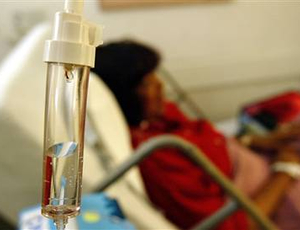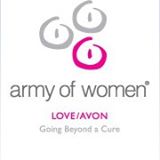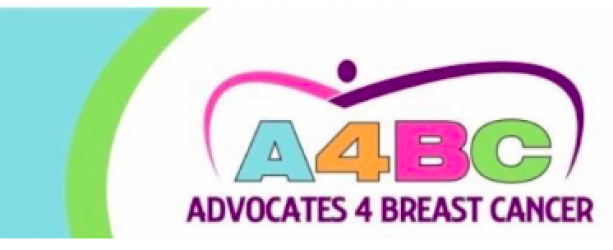I really enjoyed hearing Dr. Susan Love speak at the Inaugural Advocate Leadership Summit. For starters it was such a thrill and so exciting to see her after knowing that she went through intense treatment including chemotherapy and surgery for leukemia. I always feel so uplifted when she talks about breast cancer and opens our minds to see things with a fresh perspective. She raised some great points. I took my notes and I hope I am reflecting what she spoke about in the best way possible to help others read what she had to say.
 She spoke about breast cancer today, and the damage of treatment and over diagnosis. She said with our goal of finding every tumor even those that are just DCIS and have not progressed to cancer, is like the TSA screening. We are in a climate of over treatment where we tend to slash, burn and poison. Then when we have recurrences we have done so much treatment that it could reduce the treatment’s effectiveness. She acknowledges that doctors roles are to find things. Yet 29% of cancers would not kill. Only 20 -30% will become invasive. We over treat and over test. We are in a climate of more is better. We use MRI, PET CT, and Markers. All of this equals finding reasons for treatment. So we do surgery, radiation, chemo, and hormone targeted therapy.
She spoke about breast cancer today, and the damage of treatment and over diagnosis. She said with our goal of finding every tumor even those that are just DCIS and have not progressed to cancer, is like the TSA screening. We are in a climate of over treatment where we tend to slash, burn and poison. Then when we have recurrences we have done so much treatment that it could reduce the treatment’s effectiveness. She acknowledges that doctors roles are to find things. Yet 29% of cancers would not kill. Only 20 -30% will become invasive. We over treat and over test. We are in a climate of more is better. We use MRI, PET CT, and Markers. All of this equals finding reasons for treatment. So we do surgery, radiation, chemo, and hormone targeted therapy.
Yet we never think of not doing a treatment or subtracting from a treatment plan. We just throw everything we can at whatever we find. She talked about how the oncotype dx and/or the mammaprint test at least looks at whether all of this treatment is necessary. She says none of this is malicious on the doctor’s part. It’s just that no one is looking at the big picture.
For example, when patients are diagnosed, they are scared. So they listen to their doctors and do what they are told. But with all of this treatment thrown on all the over diagnostic testing and never subtracting from the treatment especially at an early stage comes in a climate of intense fear. No one is ever told about the terrible toll side effects will play on the patient from all of this slash and burn treatment. There is a huge amount of collateral damage.

 Having come from doing chemotherapy herself she understands how much this type of treatment takes its toll. Side effects are always down played. No one talks about the effect of AI’s or lymphedema. At least the oncotype dx test and mammaprint test looks at whether treatments might work. It would help us to know before treatment, what all these side effects were, whether all of this treatment is necessary and if every case warranted and needed all of this treatment. Also is all this treatment going to be effective or will it just overtax the body and mind? Is anyone looking at the big picture? Can we try to predict if someone will get lymphedema before we rush to do surgery?
Having come from doing chemotherapy herself she understands how much this type of treatment takes its toll. Side effects are always down played. No one talks about the effect of AI’s or lymphedema. At least the oncotype dx test and mammaprint test looks at whether treatments might work. It would help us to know before treatment, what all these side effects were, whether all of this treatment is necessary and if every case warranted and needed all of this treatment. Also is all this treatment going to be effective or will it just overtax the body and mind? Is anyone looking at the big picture? Can we try to predict if someone will get lymphedema before we rush to do surgery?
With radiation there is skin damage. Treatment causes muscles to atrophy. Do we make all women wear a protective sleeve on an airplane? Do we let patients know that when we take breast tissue away that there will be no sensation left in the breast? Do we tell ahead of all the pain from surgery?
There is pain from surgery. There is collateral damage from all treatment. There’s numbness, muscle atrophy, skin changes, and heart disease. With all of this systematic therapy all things have side effects. The fatigue and chemobrain lasts for years. There’s heart disease from chemotherapy. Anthracyclines can cause leukemia. These things have lasting side effects. Fertility problems, joint problems, fractures and second cancers…all of these things are real. Treatment is not a free lunch.
 When someone is triple negative at the beginning they can do well, but statistics show that triple negative breast cancer tends to recur early on. Other cancers tend to recur later while the patients are far away from all of this intense treatment. This is where prevention makes the most sense. If we can prevent the problem in the first place and knew what the real bugs in the breast were at the beginning wouldn’t we be better off? If we understood the environment before the problems took place and we had a vaccine to prevent these problems and we really understood how to keep a normal breast before we rush to all this treatment, wouldn’t that be a better approach? If we really looked at immunology, anatomy, physiology and found new clues and new ways to study DCIS before we rushed to throw everything in the kitchen sink on it, would we need surgery for DCIS? Could 3D ultrasound help with DCIS?
When someone is triple negative at the beginning they can do well, but statistics show that triple negative breast cancer tends to recur early on. Other cancers tend to recur later while the patients are far away from all of this intense treatment. This is where prevention makes the most sense. If we can prevent the problem in the first place and knew what the real bugs in the breast were at the beginning wouldn’t we be better off? If we understood the environment before the problems took place and we had a vaccine to prevent these problems and we really understood how to keep a normal breast before we rush to all this treatment, wouldn’t that be a better approach? If we really looked at immunology, anatomy, physiology and found new clues and new ways to study DCIS before we rushed to throw everything in the kitchen sink on it, would we need surgery for DCIS? Could 3D ultrasound help with DCIS?

Instead of continuing to follow the things as they are, we at least owe it to ourselves to be asking these questions. Instead of rushing to treatment with DCIS would it be better to see carefully what was happening before we put a patient through these treatments that have collateral damage and side effects? Tamoxifen has a lot of side effects as well as AI’s.
At least by asking these questions and trying to prevent the problem with a vaccine we would be looking at everything we are doing and starting to come up with new ways of approaching the problem instead of just following the status quo of what we are doing. We need to do this so that we can avoid all of this collateral damage and also have these treatments available in case things progressed before someone has been so over treated that when they present with advanced disease all of this has been used and is no longer effective.
 I also asked her whether by working on a vaccine to prevent breast cancer could we also apply using this for metastatic disease by injecting someone with a vaccine and being able to turn their disease around? She very carefully admitted that this was not her expertise and that she had just finished treatments, but she did feel that there was nothing to prevent us from trying to make a vaccine that also tackled metastatic breast cancer. Whether or not this is feasible I do not know, but what I did appreciate was hearing her perspective after going through as much as she has been through, and I am so glad that she is part of the team of trying to find answers and look at new ways that we approach this terrible disease.
I also asked her whether by working on a vaccine to prevent breast cancer could we also apply using this for metastatic disease by injecting someone with a vaccine and being able to turn their disease around? She very carefully admitted that this was not her expertise and that she had just finished treatments, but she did feel that there was nothing to prevent us from trying to make a vaccine that also tackled metastatic breast cancer. Whether or not this is feasible I do not know, but what I did appreciate was hearing her perspective after going through as much as she has been through, and I am so glad that she is part of the team of trying to find answers and look at new ways that we approach this terrible disease.
It’s so great to have her back with all of us, after her treatments. She is truly someone who I admire and knows so much about breast cancer and it’s amazing to see her post treatment with so much enthusiasm for getting back to work on all of these important issues revolved around breast cancer.
Dr. Susan Love, MD, MBA, FACS is a Clinical Professor of Surgery at the David Geffen School of Medicine at UCLA, and the President of the Dr. Susan Love Research Foundation. She leads the Love/Avon Army of Women, an initiative partnering of women (and men) who are willing to participate in breast cancer research with scientists who are conducting research on the prevention of breast cancer. She is the author of “Dr. Susan Love’s Breast Book,” which is in it’s 5th edition. Dr. Love is a founding member of NBCC and her foundation is represented on the Board of Directors of NBCC. She received her medical degree from SUNY Downstate Medical Center in New York and did her surgical training at Boston’s Beth Israel Hospital.
______________________________________________________________________________
After realizing that some people are not aware of the Oncotype DX test or the Mammaprint test, I went to their websites and here is the current information about the tests. Of course, always discuss this with your oncologist as this is only here to help those that don’t know the latest information about these tests that is available online.
According to the Oncotype DX website:
The Oncotype DX® test is a diagnostic test that helps identify which women with early-stage, estrogen-receptor positive and lymph-node-negative breast cancer are more likely to benefit from adding chemotherapy to their hormonal treatment. This test also helps assess the likelihood that an individual woman’s breast cancer will return. The Oncotype DX test provides important information that you and your doctor may use when making decisions about treatment. Post-menopausal women recently diagnosed with node-positive, hormone-receptor-positive breast cancer may also be appropriate candidates for the Oncotype DX test.
According to the MammaPrint website:
To be eligible for the MammaPrint gene expression profile, a breast cancer patient should fulfill the following criteria:
- Breast Cancer Stage 1 or Stage 2
- Invasive carcinoma (infiltrating carcinoma)
- Tumor size <5.0 cm
- Lymph node negative
- Estrogen receptor positive (ER+) or Estrogen receptor negative (ER-)
- Women of all ages




Susan, thank you for this informative, comprehensive overview of Dr. Love’s talk. I really appreciate your relaying this information. I agree overtreatment is a problem. I’ve learned firsthand, as have many, the problems with AIs, chemo, radiation, etc. Excellent post!
LikeLike
Listening to Dr. Susan Love also had me thinking about how over treatment is a problem. I really think that she raised so many interesting points and she makes so much sense. Although we can’t go back (in terms of our own treatment decisions) and we made the best possible choices at the time, it still is important that we start to look at this problem and try to come up with better solutions. Thanks Beth!
LikeLike
Nice write up Susan. Thanks! Oncotype and similar technologies to help determine who needs what kind of treatment does seem like the way to go rather than to just throw everything at just about everyone. Thanks for telling us about mammaprint. I had not heard of it till I read this blog.
Best,
Rachel
LikeLike
Rachel, I am glad you inspired me to take my notes and write a post about them. I wish that the oncotype dx test was available for me when I had to make treatment decisions. I am glad that I included the mammaprint test and hope others become aware of it. I wish they could even get more of these tests for different types of breast cancer including those that test HER2/neu and triple negative with lymph node involvement available to help people have more information when having to make treatment decisions. Thanks so much for your positive feedback.
LikeLike
I am so glad I was able to get the Oncotype dx test. It showed that for my situation, Tamoxifen was definitely beneficial, but that with chemo I actually had an increased risk of recurrence. My oncologist made sure that I was ok with NOT throwing everything at my cancer at this stage, while we considered the results of the Oncotype–many of her patients feel that they must go all out regardless of what the Oncotype results indicate.
Great notes!
LikeLike
I am so glad that this test was available for you and as a result you were not subjected to very damaging chemotherapy that may have even contributed to a recurrence. It sounds like you are getting excellent care and as I mentioned in another comment, I hope they keep working on making this type of testing available for so many types of breast cancer. Thank you for sharing this information about your test and how you breast cancer was treated or more importantly…not over treated! YEAH!
LikeLike
It’s so strange; for the past year I’ve felt that because of the Oncotype dx and the subsequent decision not to do chemo, I’ve done a BC treatment lite compared to so many others. Your words make me realize that that is ok, and I shouldn’t feel guilty. However, I do need to advocate for others to be able to have the test–and share the fact that it is an option. In my naivete, I have assumed that the test was widely available and known–even though expensive!
LikeLike
I am so glad you realize that you should absolutely never feel guilty for being eligible and benefiting from this test. It is wonderful that it was available to you. I also feel guilty because I had a local recurrence and so many of my friends who have a recurrence have MBC. I have to remind myself to be happy that was my result. I went on the Oncotype DX and Mammaprint websites and added the latest information concerning who is eligible for the tests on the post. Because these tests are still is not available for many node positive cases and certain pathologies, this technology is so important to continue to develop. I still would not have been eligible for the test or I would have loved it to be available, but when I hear that you were and you benefited from it I am so happy for you. This type of research is so important.
LikeLike
Excellent post, Susan! You took great notes and worked them into a post that was informative and easy to understand. This is a great post not just for the newly diagnosed, but for everyone to read.
I think those diagnosed with DCIS often feel pressure to take everything that’s offered to them in our ‘more is more’ culture, even if this may not be what is right for them.
And your point about the side effects of treatment was an excellent one. We are often not really aware of what will/could really happen to us. Of course those of us who really need these treatments will likely still opt for them (as I would have despite what the side effects have done to my body), but it might help someone who is on the fence or who maybe had a low Oncotype or Mammaprint score to make his/her decision.
Well done, Susan! Thank you for sharing!
LikeLike
Thank you so much for commenting and all of your positive feedback. Even as I look back at my treatment I still would do the treatments, but it’s important to recognize and hope that we can work towards finding less invasive things that will work with this disease. The side effects do a number on our bodies! With DCIS there certainly are a lot of questions, and I really wish they had more tests that could help with all types of DCIS as well as further stages. There is a lot of pressure for treatment, yet when you are the one going through this and that’s all they have, even Dr. Susan Love understands having just finished her treatments for leukemia, you have to do what they are recommending as you try to research as much as possible what’s the best choice for you.
LikeLike
You make such great points! I hope that someday soon there will be less invasive, less harmful options. Thank you for keeping the dialogue going and for being someone who advocates for all of us!
LikeLike
Susan, Thank you for the wonderful write up. There are an awful lot of questions aren’t there? I am dealing with some nasty side effects of AI’s right now. I also have some lasting side effects from chemo. I don’t think people are made aware of such things to the point perhaps that they should be. I was not a candidate for the OncotypeDX test, but I’m glad it’s an option for some. Sparing patients from chemo when it’s determined to not be beneficial is wonderful. It must have been great to listen to Dr. Love speak. Thank you so much for sharing about it.
LikeLike
Nancy, this is so strange. I was making a comment on your post (and you commented on mine!) about your bilateral mastectomy and while commenting started writing about my side effects with tamoxifen because I originally had a lumpectomy with radiation and there had been a question if not taking tamoxifen had contributed to my recurrence that led me to having to do a mastectomy and doing a bilateral because I had breast cancer only a year and a quarter after my last radiation treatment. I am er+, pr- (estrogen positive pr negative) and because the ATLAS and aTTom studies came out of ASCO this week, I had been reporting on all of the breast cancer abstracts at ASCO on #BCANS.
I went back to my own question of whether er+ pr- is resistant to tamoxifen (since I took it for 5 years and recently finished) and all of my research shows it is. I found myself researching this for hours. All those side effects for possibly no benefit! I have decided I must not let fear take over me and assume all is well since this kind of thinking will do me no good.
What I must do is bring my mind to a positive place and be thankful that all is well. I just wish that this disease did not have so many awful side effects and cause mets and take away people that I loved very much. What’s most important is that I release all of this into the universe, take a deep breath and focus on all of the positives while I try to be the best advocate I can be to others.
It’s ironic that there are people who think we got free breast jobs! LOL!
LikeLike